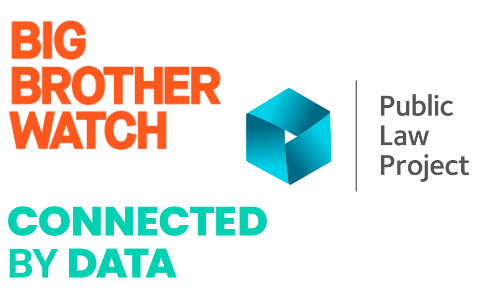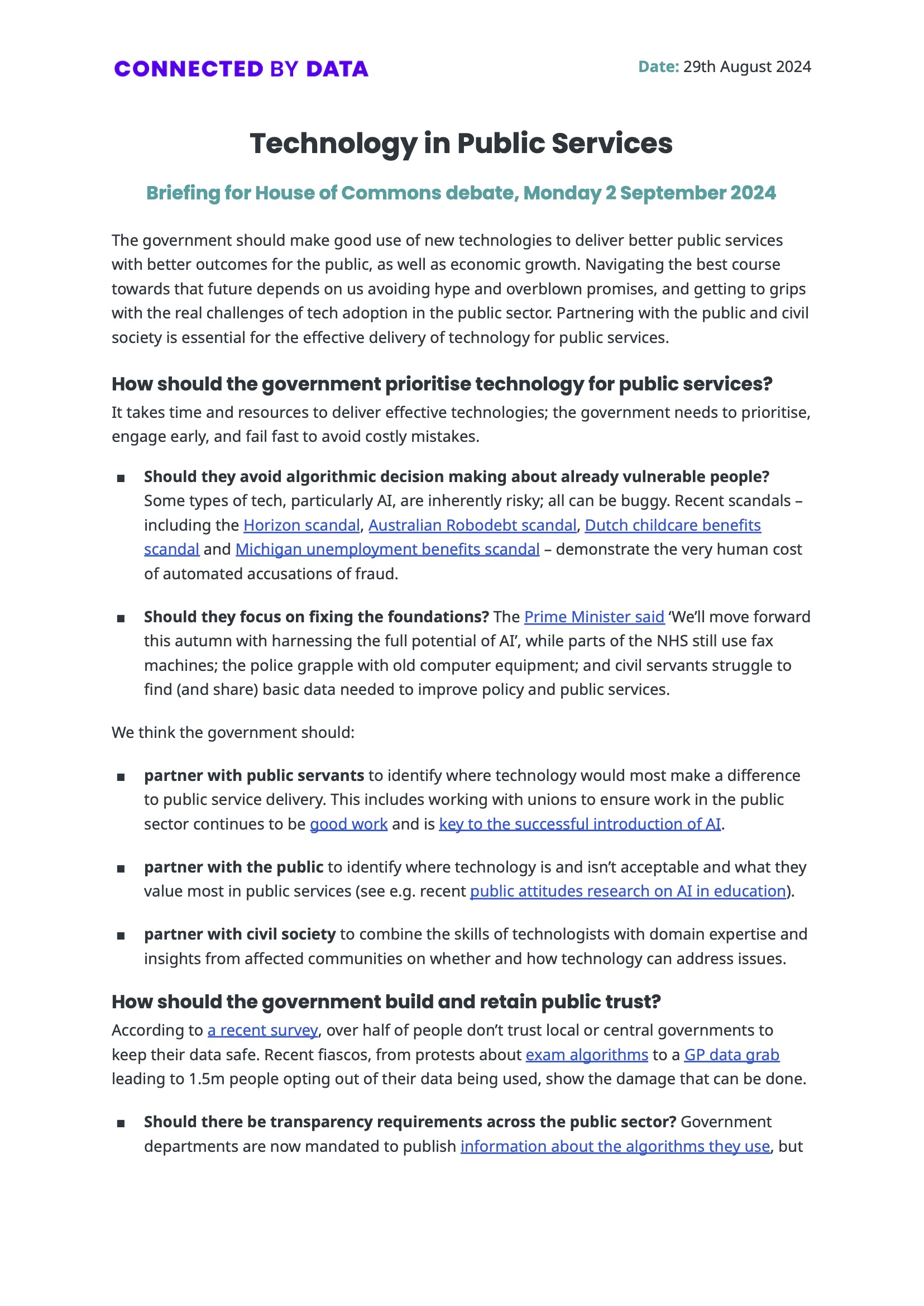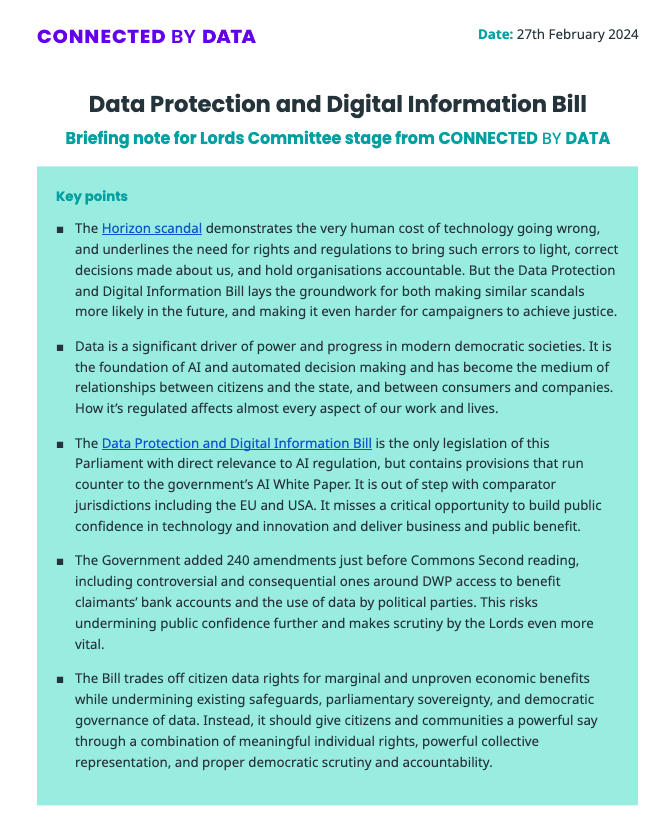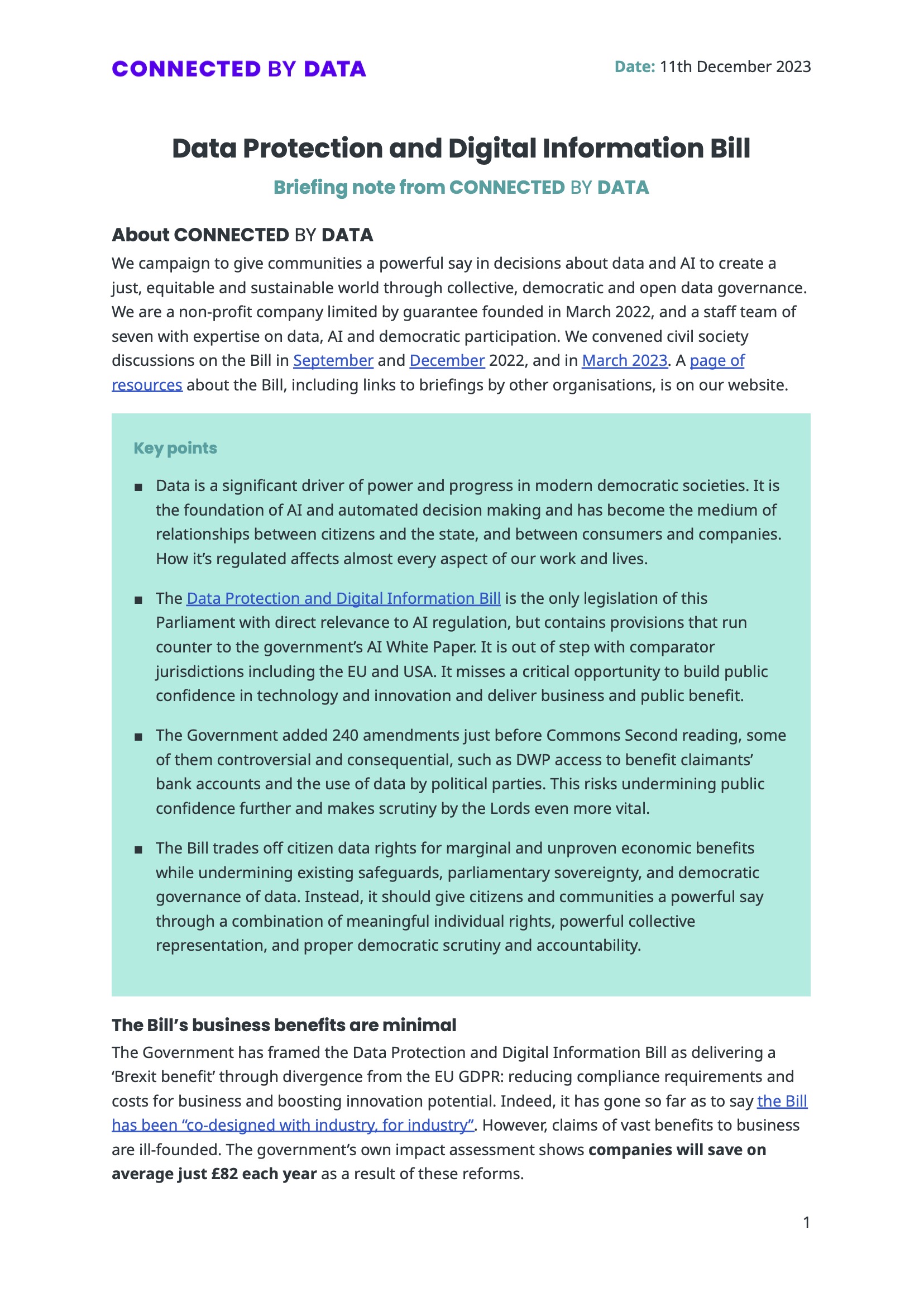Seizing The Moment
Influencing UK data policy


AI and data are everywhere in our political discourse and our everyday lives. Shaped properly, the benefits brought by such new technologies could lead to public benefit, with better services and better policies allowing us all to live better lives. But power over AI and data is currently concentrated in a small number of large companies working in their own interests, apparently untouched by questions of democratic accountability, and politicians easily seduced by hype or slowed by panic.
With governments increasingly using data and AI to make life changing decisions and big tech setting the rules and parameters of our digital lives, it is critical to bring democracy to the debate: we need greater transparency and openness about how these decisions are made, rights and other protections to ensure they are not harmful, and participation and deliberation to make them work in the democratic public interest. Government needs to demonstrate trustworthiness in its use of such technologies – not doing so risks disenfranchisement and alienation from and a further loss of trust in the political system. Who gets to decide our AI future is a question of critical democratic importance.
We seek to see:
- Progressive political parties heading into the next election with progressive policies on AI and data in their manifestos and post-election plans
- The Data Protection and Digital Information (No 2) Bill is either heavily amended or blocked
- A strong and diverse network of civil society organisations and research and academic institutions supports and scrutinises progressive policymakers on AI and data
We are particularly grateful to the Joseph Rowntree Reform Trust for their generous help and support for this work. Our previous JRRT funded project ‘Our Data Futures’ has now ended.
Resources
The government should make good use of new technologies to deliver better public services with better outcomes for the public, as well as economic growth. Navigating the best course towards that future depends on us avoiding hype and overblown promises, and getting to grips with the real challenges of tech adoption in the public sector. Partnering with the public and civil society is essential for the effective delivery of technology for public services.
This briefing was circulated to relevant MPs prior to the Commons General Debate on Technology in Public Services, held on 2nd September 2024.
Welcome to the Data and AI Civil Society Network Election Hub. Click through to the Google Doc below where you can find – and add! – links to manifestos from civil society organisations and other key election resources.
This is our public briefing note for the Lords’ Committee stage on the UK’s Data Protection and Digital Information Bill.
Our key points are:
- The Horizon scandal demonstrates the very human cost of technology going wrong, and underlines the need for rights and regulations to bring such errors to light, correct decisions made about us, and hold organisations accountable. But the Data Protection and Digital Information Bill lays the groundwork for both making similar scandals more likely in the future, and making it even harder for campaigners to achieve justice.
- Data is a significant driver of power and progress in modern democratic societies. It is the foundation of AI and automated decision making and has become the medium of relationships between citizens and the state, and between consumers and companies. How it’s regulated affects almost every aspect of our work and lives.
- The Data Protection and Digital Information Bill is the only legislation of this Parliament with direct relevance to AI regulation, but contains provisions that run counter to the government’s AI White Paper. It is out of step with comparator jurisdictions including the EU and USA. It misses a critical opportunity to build public confidence in technology and innovation and deliver business and public benefit.
- The Government added 240 amendments just before Commons Second reading, including controversial and consequential ones around DWP access to benefit claimants’ bank accounts and the use of data by political parties. This risks undermining public confidence further and makes scrutiny by the Lords even more vital.
- The Bill trades off citizen data rights for marginal and unproven economic benefits while undermining existing safeguards, parliamentary sovereignty, and democratic governance of data. Instead, it should give citizens and communities a powerful say through a combination of meaningful individual rights, powerful collective representation, and proper democratic scrutiny and accountability.
Data Protection and Digital Information Bill: what happened at Lords Second Reading?
Introduction
On Tuesday 19 December 2023 – the last day before their Christmas break – the House of Lords got to debate the Data Protection and Digital Information Bill for the first time.
This is known as Second Reading – First Reading is a formality, where the Bill is introduced to the House after moving through the Commons, and it will next go to Committee stage (for detailed scrutiny), then Report Stage and Third Reading (for amendments and further debate in the Chamber).
Below is a brief summary of the debate (starting with a table of contents). You can also read the debate in full, read my live tweeting, watch the debate or check out our page of resources on the Bill and its parliamentary passage.
Events

AI and digitalisation is rapidly changing how public services are delivered, with the government making the public sector use of AI a key priority.


Almost every modern policy reform relies on new data systems, and increasingly involves technologies labelled as Artificial Intelligence (AI) to make and shape decisions. Whether that’s education, health, benefits, housing, social care, work, policing, democratic engagement or a multitude of other areas.



